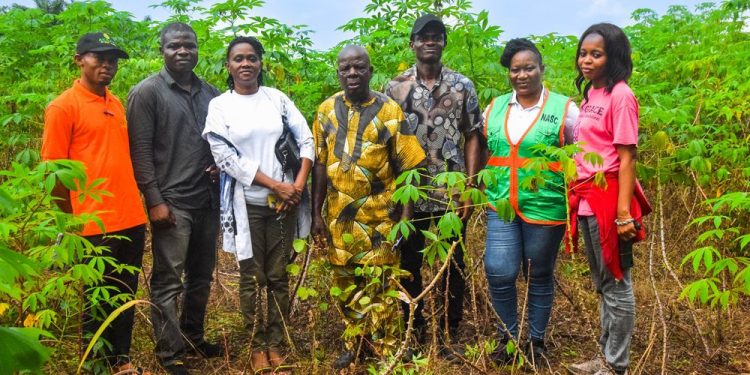In a bid to enhance agricultural productivity, increase farmers’ income, and promote food security in the Niger Delta, stakeholders gathered in Asaba, Delta State, for a Cassava Seed Entrepreneurs (CSE) Certification Workshop. The event, held yesterday, was organized by the Foundation for Partnership Initiatives in the Niger Delta (PIND) in collaboration with the National Agricultural Seed Council (NASC), the National Root Crops Research Institute (NRCRI), and other key partners.
Anas Mustafa, PIND’s Market Systems Development Advisor, emphasized the importance of the workshop in strengthening cassava production. “The success of this workshop underscores the critical role of cassava seed entrepreneurs in improving agricultural productivity in the Niger Delta,” he stated. He added that equipping these entrepreneurs with essential skills and resources will not only boost cassava production but also contribute to the region’s economic growth and food security.
The CSE certification program is part of PIND’s larger effort to promote sustainable development and market-driven solutions in the Niger Delta, focusing on income and job creation through improved agricultural systems.
Representing the Delta State Ministry of Agriculture, Mr. Leo Oburotha, Deputy Director of Agro Services, expressed the state government’s support for cassava production. He commended PIND for organizing the workshop, which aligns with the government’s agricultural objectives.
Mrs. Kemdirim Anaetochi, Education Officer at the Kolping Society of Nigeria, highlighted that the workshop would deepen entrepreneurs’ understanding of seed certification and traceability systems, vital for cassava stem production. She also noted the event’s role in fostering knowledge-sharing and networking among stakeholders and cassava seed entrepreneurs.
The workshop brought together 25 certified cassava seed entrepreneurs, government officials, agro-dealers, and other stakeholders. These participants pledged to apply the knowledge gained to strengthen cassava seed production and distribution systems across the Niger Delta.
The CSE program is designed to address the challenges of low-yielding and disease-susceptible cassava varieties by empowering smallholder farmers with access to high-quality, disease-resistant cassava stems. This initiative is a critical step toward improving cassava yields and unlocking new entrepreneurial opportunities in the region.










